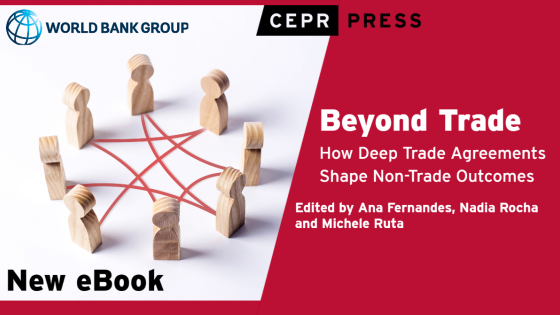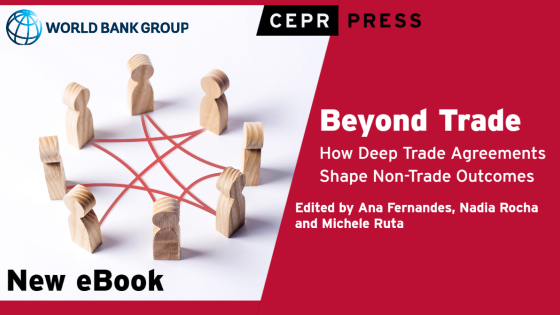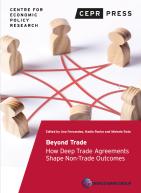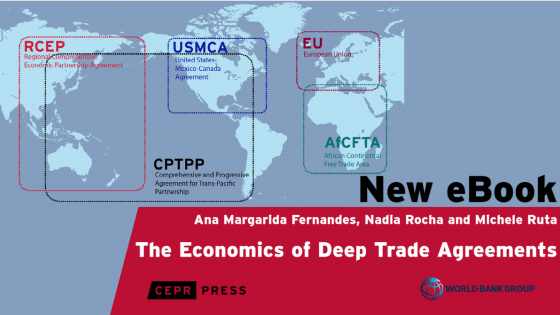
Press release: How deep trade agreements shape non-trade outcomes
Preferential trade agreements (PTAs) are emerging as a means to tackle emerging social and environmental challenges and as potential blueprints for future global trade arrangements. . PTAs have undergone significant transformation over the past fifty years, shifting from a focus on enhancing market access to increasingly include disciplines aimed at achieving non-trade objectives: promoting FDI, technology transfers, workers’ movements, but also improving labour conditions, environmental quality and achieving other broader social goals.
This new CEPR-World Bank eBook, edited by Ana Fernandes, Nadia Rocha and Michele Ruta, brings together leading experts in international trade from academia and policy institutions to provide the first empirical assessment of the effectiveness of non-trade disciplines in PTAs, and asks: have PTAs delivered on their promise?


